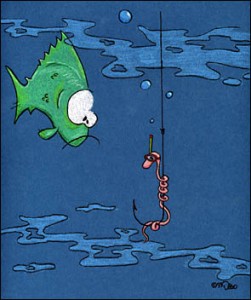Believe it or not you and I and everyone else has the power to shape the future. Not everyone is an inventor, a creator, the CEO of a leading tech firm, or the designer of the next big thing, but collectively we have the strength in numbers. We are consumers and with our purchasing power we can shape the future the way we want it to be. One person alone cannot shape the future, but collectively we can, by choosing what we buy, by voicing our opinions, by making sure our voices are heard.
Every time you purchase a product or service you are telling business what you want and what you do not want. Ultimately businesses will only create and maintain products and services that lead to a profit and to be fair that is the purpose of a business – to make profit. You might not have direct influence on how a business operates but you do have power to make businesses succumb to your will. Businesses need to make profit, profit comes from sales, sales come from consumers, you are a consumer, therefore businesses need you.
I’m not going to tell you what you should purchase and from whom, neither will I suggest how we should shape the future. That is not my job, at least that is not my job in this post. All I want to do is give you a chance to examine what you are purchasing, where the product or service is coming from, whether you agree or disagree with the product making process, whether or not the company’s operations, where the product is being made and by whom the product is being made and the product itself is in alignment with your own values and beliefs.
Every time you pay for a product or service, you are creating a demand for it. An increase in demand will inevitably lead to either an increase in price or an increase in supply. Ask yourself whether you would want the increase of this product in the market. Is the increase in supply good for the economy, the general public, your government and yourself.
There is certain class of consumers known as fanboys/fangirls who would purchase anything that a company makes just because they are loyal to that particular brand name without considering the possibility of other products or services at their disposal. I’m not telling or asking you to change this behaviour. All I am suggesting is to ask yourself this question:”Would it not be better to stay loyal to yourself, to your values, to your beliefs, to your vision of the future then to stay loyal to an identity that you have formed as the user of product X or the user of services Y”.
Does it really server anyone if you remain loyal to a brand and not the technology, the quality or the essence of that product or service? And if so who does it really serve?
Are there industries that you are part of simply by being a consumer creating demand by purchasing a product or services, but those industries do not conform with your own values? Are there products that you consume on a regular basis that cause more harm than good to you and others around you.
I urge you to examine the consequence of the act of purchasing.
Remember you have the power,…we have the power to shape our future. This idea is not a break through idea, it is a simple idea that we are all a part of on daily basis, but more often than not we tend to forget about it because we are living inside of it instead of looking into it.









.jpg) Today, I revisited the 80/20 rule. The first time I came across the concept of 80/20 was around 2 to 3 years ago. I was exiting a library when I noticed amongst a pile of other books, a blue book with 80/20 written on its cover with big white fonts. For some very odd reason it really caught my attention. I had not heard about the concept before. I could not take the book because it was still in the process of getting checked in, so I took a picture of it on my phone. Some days later I went and got the book. I skimmed through and it I was amazed at the simplicity of this rule. I don't know why it's there but it's there and I like simple things that work, even if it is an approximation.
Today, I revisited the 80/20 rule. The first time I came across the concept of 80/20 was around 2 to 3 years ago. I was exiting a library when I noticed amongst a pile of other books, a blue book with 80/20 written on its cover with big white fonts. For some very odd reason it really caught my attention. I had not heard about the concept before. I could not take the book because it was still in the process of getting checked in, so I took a picture of it on my phone. Some days later I went and got the book. I skimmed through and it I was amazed at the simplicity of this rule. I don't know why it's there but it's there and I like simple things that work, even if it is an approximation.
 Why have I put so much emphasis on my name up until now? Because the world we live in is very dynamic and is ever changing. I started off as a software developer, then as Performance Test Engineering, later I became a free lance web develper, and when that was going well, I founded
Why have I put so much emphasis on my name up until now? Because the world we live in is very dynamic and is ever changing. I started off as a software developer, then as Performance Test Engineering, later I became a free lance web develper, and when that was going well, I founded